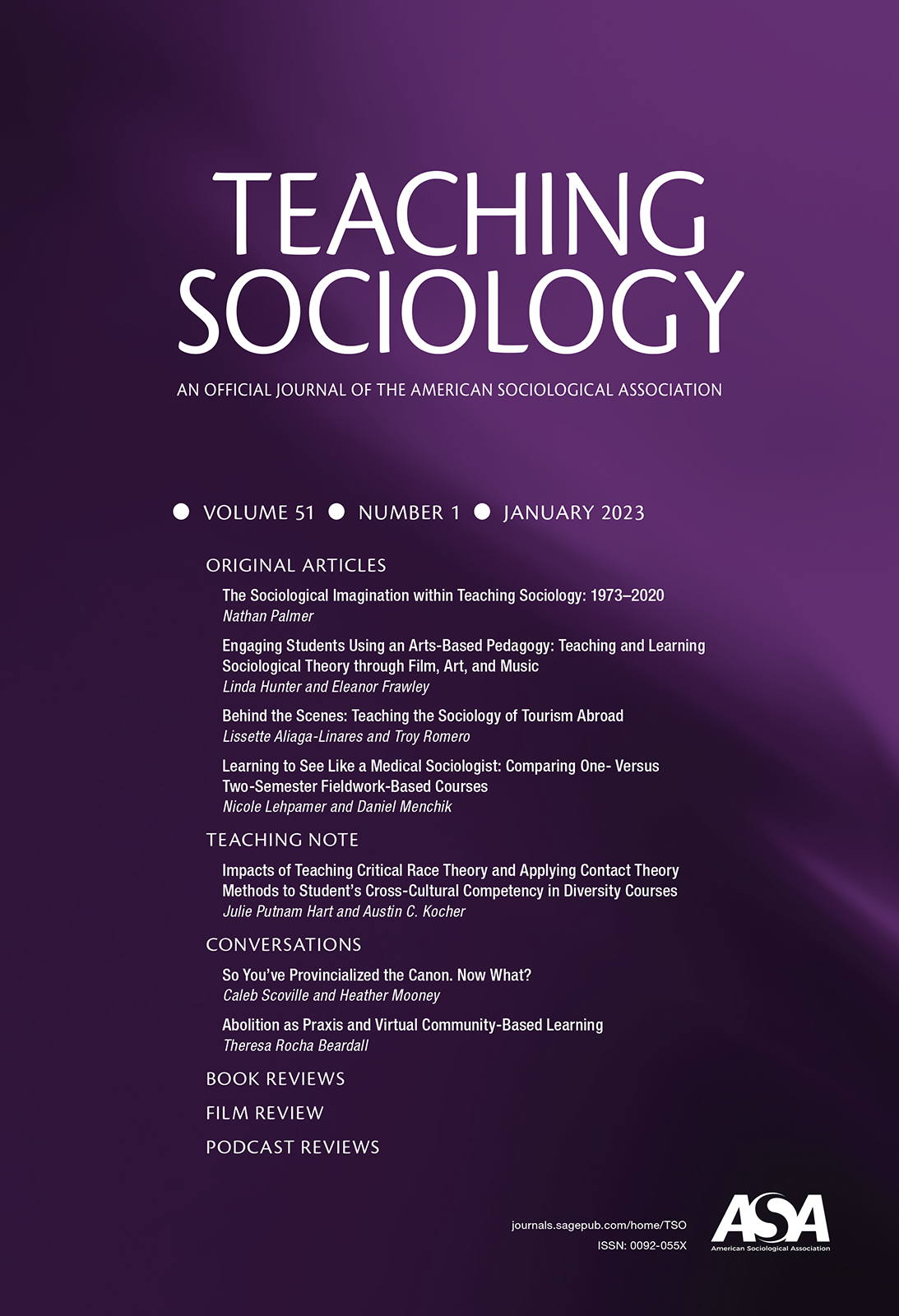
Contexts
Sociology (General)
About Contexts
Contexts is a quarterly magazine that makes cutting-edge social research accessible to general readers. It's the public face of sociology. In Contexts, you'll find the best sociological ideas and research; fresh perspectives, clear, concise thinking, and jargon-free reporting; and a thought-provoking look at modern life. It includes feature articles, culture and book reviews, and photo essays, as well as analysis of the latest social science research.
Who Should Read Contexts?
- Anyone interested in sociological trends, social change, and the implications of sociological knowledge for policy and public debate
- Teachers, students, journalists, civil servants and policy makers seeking out important developments in social research
- Social and behavioral scientists interested in the cross-fertilization of ideas and creative new thinking
- All sociologists who wish to remain current and engaged with findings across the field
In each issue of Contexts you’ll find:
- The best sociological ideas and research
- Fresh perspectives, clear, concise thinking and jargon-free reporting
- A though-provoking look at modern life
Direct submissions and inquiries to the following:
Features: editors@contexts.org
Culture Reviews: culture@contexts.org
Trends: trends@contexts.org
Book Reviews: books@contexts.org
Photo Essays: photos@contexts.org
Policy Brief: policybrief@contexts.org
One Thing I Know: editors@contexts.org
The American Sociological Association (ASA), founded in 1905, is a non-profit membership association dedicated to advancing sociology as a scientific discipline and profession serving the public good. With 12,000 members, ASA encompasses sociologists who are faculty members at colleges and universities, researchers, practitioners, and students. About 20 percent of the members work in government, business, or non-profit organizations. ASA hosts an annual meeting with more than 6,000 participants and publishes 14 professional journals and magazines.
As the national organization for sociologists, ASA, through its Executive Office, is well positioned to provide a unique set of services to its members and to promote the vitality, visibility, and diversity of the discipline. Working at the national and international levels, ASA aims to articulate policy and implement programs likely to have the broadest possible impact for sociology now and in the future.
 |
 |
 |
 |
 |
 |
 |
 |
 |
 |
 |
 |
 |
Who Should Read Contexts?
- Anyone interested in sociological trends, social change, and the implications of sociological knowledge for policy and public debate
- Teachers, students, journalists, civil servants and policy makers seeking out important developments in social research
- Social and behavioral scientists interested in the cross-fertilization of ideas and creative new thinking
- All sociologists who wish to remain current and engaged with findings across the field
In each issue of Contexts you’ll find:
- The best sociological ideas and research
- Fresh perspectives, clear, concise thinking and jargon-free reporting
- A though-provoking look at modern life
| Seth Abrutyn | University of British Columbia |
| Amin Ghaziani | University of British Columbia |
| Jack Barbalet | Australian Catholic University |
| Wayne H. Brekhus | University of Missouri-Columbia, USA |
| Tristan Bridges | University of California-Santa Barbara |
| Melissa Brown | Santa Clara University |
| Kelsy Burke | University of Nebraska-Lincoln |
| Stephanie L. Canizales | University of California, Berkeley, USA |
| Ryan Centner | London School of Economics |
| Barbara Harris Combs | Clark Atlanta University |
| Randol Contreras | University of California-Riverside |
| Rodney D. Coates | Miami University-Ohio |
| Anya Degenshein | Marquette University |
| Faustina M. DuCros | San Jose State University |
| Francesco Duina | Bates College, USA |
| Jan Arendt Fuhse | Humboldt Universitat (Berlin) |
| Neil Gong | University of California-San Diego, USA |
| Kenneth Hanson | University of Wyoming, USA |
| Melanie Heath | McMaster University |
| Yasmiyn Irizarry | University of Texas-Austin |
| Pei-Chia Lan | National Taiwan University |
| Joseph T. Lariscy | University of Memphis, USA |
| Damon Mayrl | Colby College |
| Joshua McCabe | Endicott College |
| Laura K. Nelson | University of British Columbia |
| Laura Beth Nielsen | Northwestern University |
| Raúl Pérez | University of La Verne, USA |
| Amelie Quesnel-Vallee | McGill University |
| Zeinab F. Shuker | Sam Houston State University |
| Michelle Pannor Silver | University of Toronto, Canada |
| Casey Stockstill | Dartmouth College, USA |
| Jessi Streib | Duke University |
| Jenny M. Stuber | University of North Florida |
| Bertha Alicia Bermudez Tapia | New Mexico State University |
| Marshall A. Taylor | New Mexico State University |
| Lisa Wade | Tulane University |
| Emily Walton | Dartmouth College |
| Deadric T. Williams | University of Tennessee-Knoxville |
| Amina Zarrugh | Texas Christian University |
Manuscript submission guidelines can be accessed on Sage Journals.